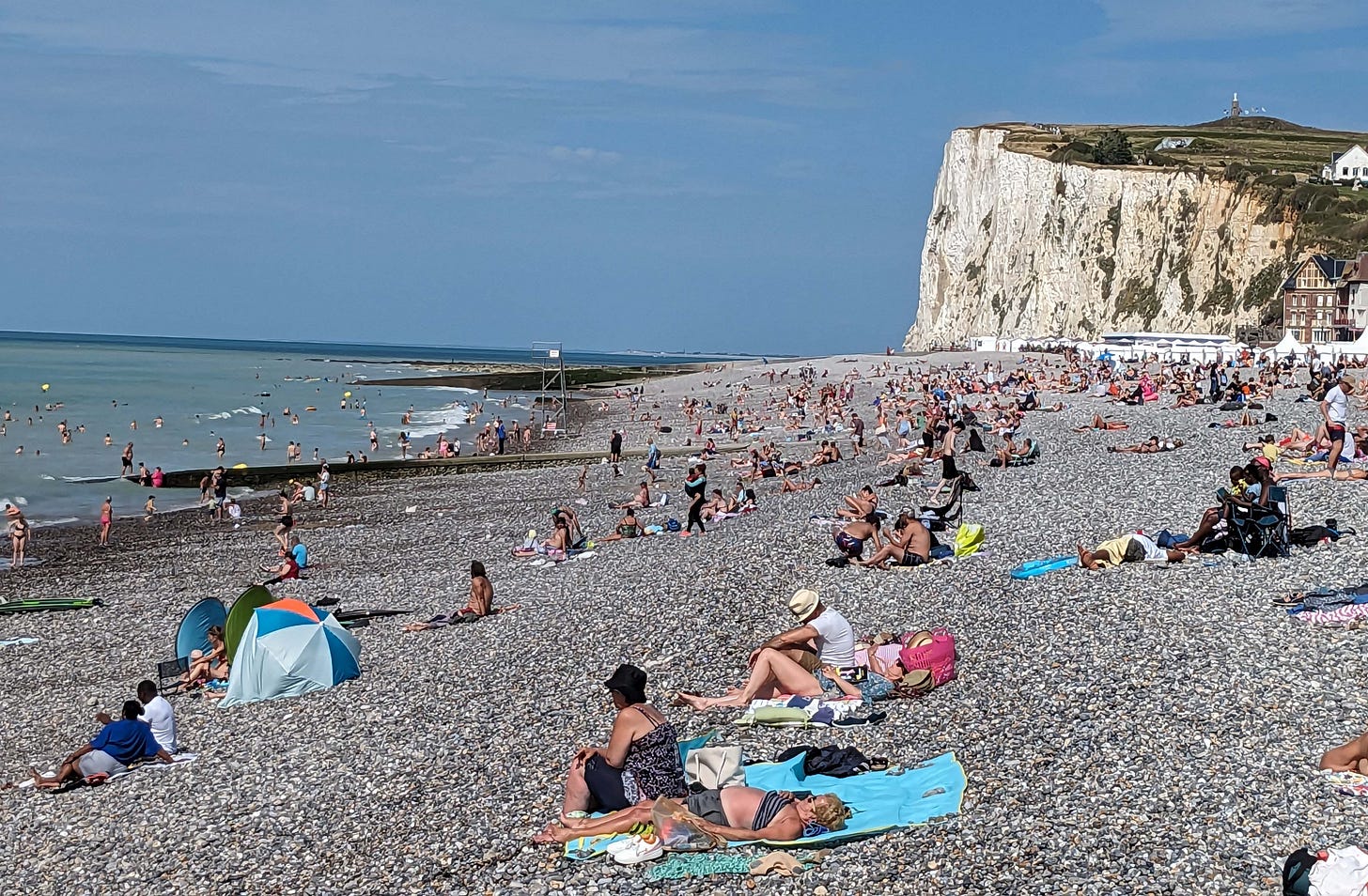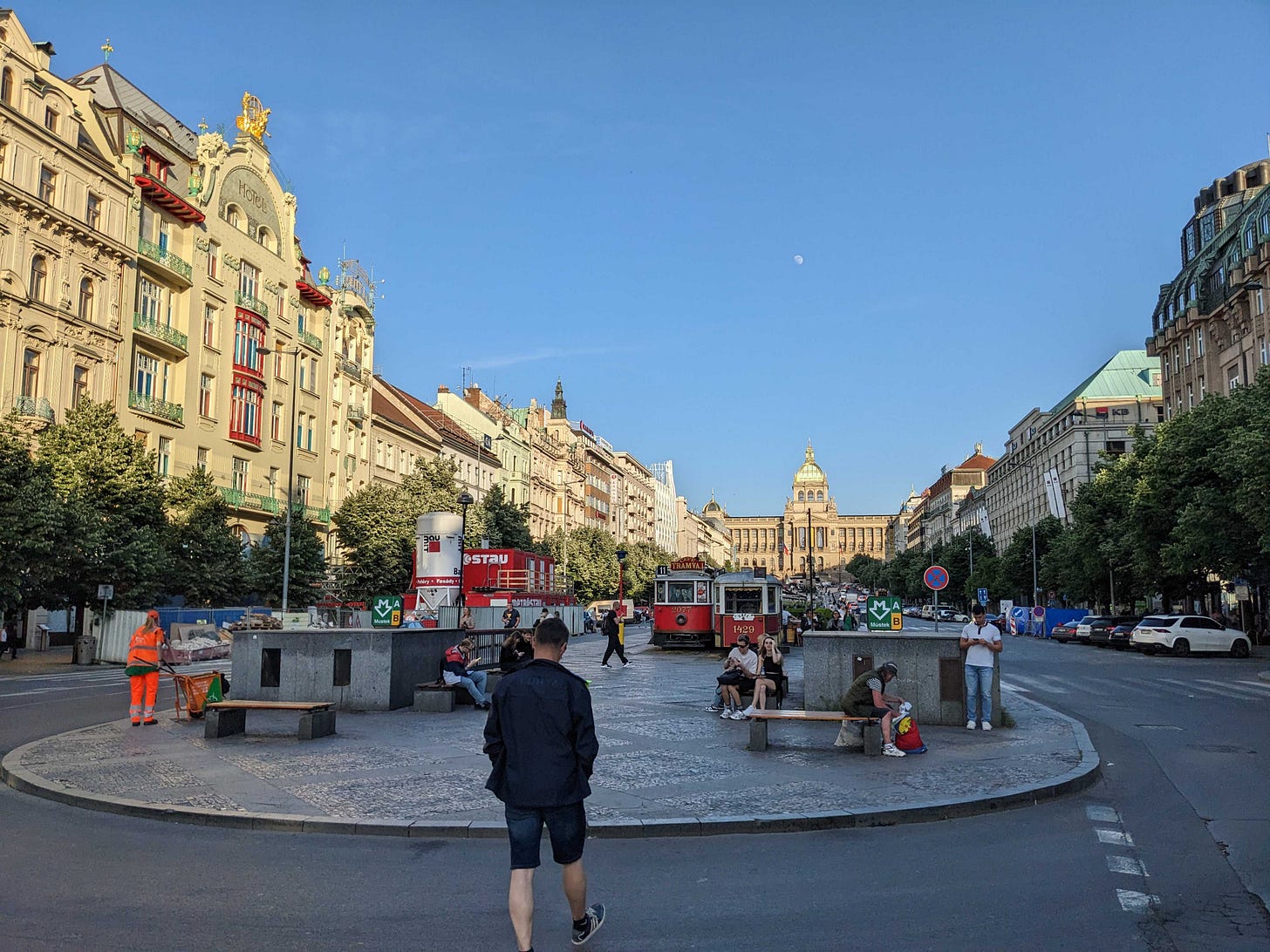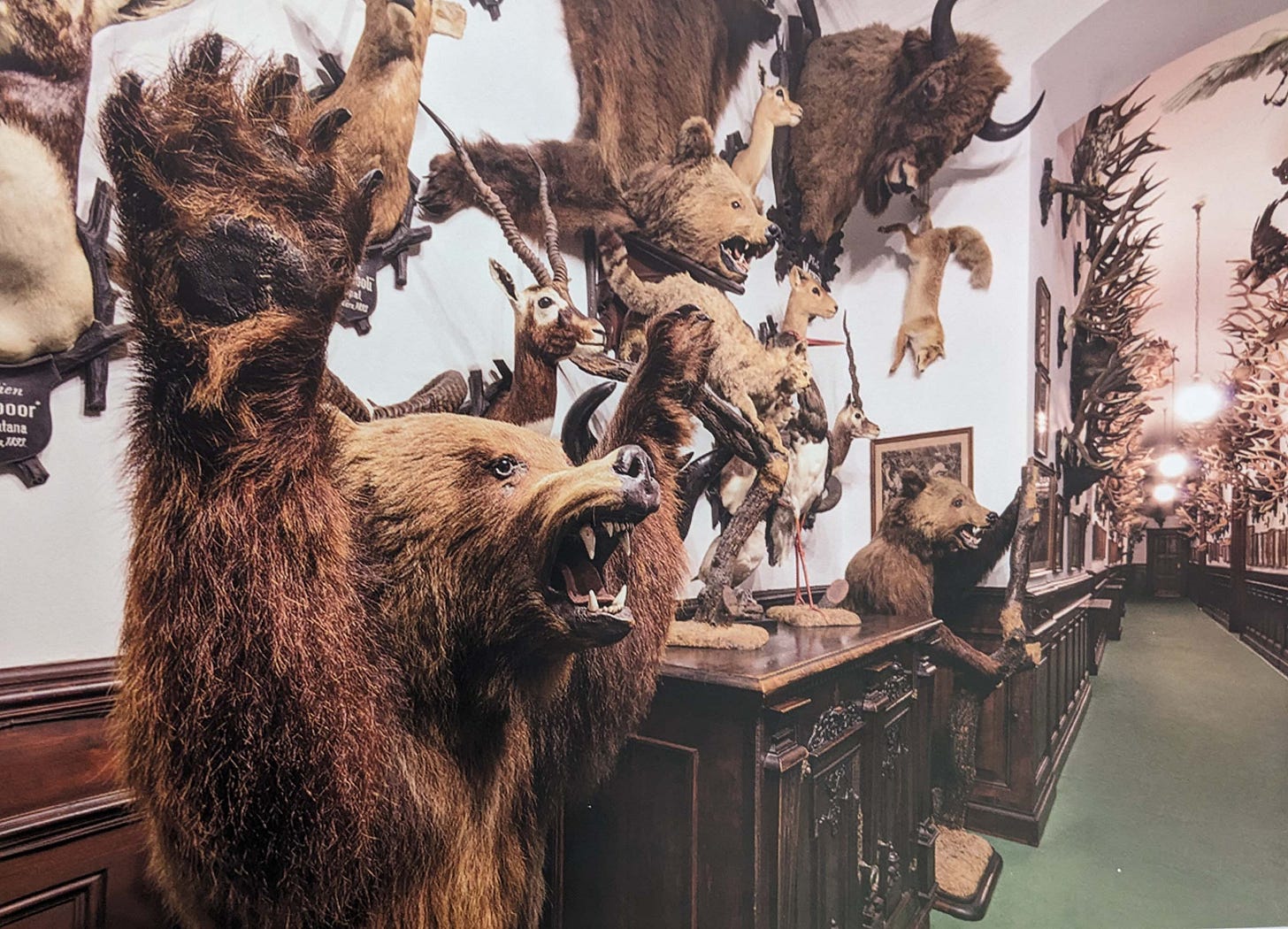The summer vacation is sacred in France. It’s a right, not a perk: five weeks of paid vacation is the legal minimum that has to be offered to every full-time, non-temporary employee. This means that people working at McDonalds in France have more paid vacation in their first year than the average US federal government employee does after 20 years of service.
My husband and his parents have asked me at least five times this summer when my daughters are taking their vacations. I keep reminding them that my daughters don’t get vacation time: they are both entry level workers in the service economy, back in Minnesota. But the idea that they don’t get paid (or even unpaid) vacation time is so impossibly foreign that it doesn’t stick, and two weeks later they ask me again.
I once saw an advertisement in France with an enormous photo of a very cute but very sad little boy, about six years old, looking longingly out a window. The text said, “Nearly three out of ten children will be deprived of vacation this summer,” and the poster included a website link for donations to help fund vacation experiences for those so unfortunate. Note that this doesn’t mean that the boy’s parents don’t have paid vacation time, but rather that they are not going to GO anywhere. This is what deprivation looks like.
Almost everyone in France uses at least some of their vacation weeks in July or August. The school year finishes later than in Minnesota, toward the end of June, so most families schedule two or three weeks of their vacation time in those two months. Beaches are popular destinations, as are “campgrounds,” but these too are very different from what we imagine in the US: when you book a camping holiday in France you reserve a mobile home in the huge campground, or a very sturdy tent complete with kitchen, shower, toilet, and bedrooms.
Families enjoying an English Channel beach in August
Many restaurants and small businesses close for two weeks in July or August: it’s easier to have everyone gone at the same time and to close than to scramble for temporary help to cover for all who are on vacation.
I remember how shocked I was my first time in Paris, in August of 2008, finding so many stores and restaurants with handwritten paper signs on their shuttered doors: “Closed from August 16th to the 31st,” or from August 21st to September 4th. I wondered how businesses could keep their clientele when they just up and close like that for two weeks or longer.
Now I know: since EVERYONE takes summer vacation, people know that their favorite restaurants and stores will close. They ask ahead of time (“When is your annual closing (fermeture anuelle) this year?’), and they plan ahead. If you know that your usual bakery will be closing, you can stock up on bread in the freezer, or have a backup plan for where you will buy it during those weeks. I’ve started doing this myself: this year I asked my cheese vendor at the market, my favorite bakery, and my favorite restaurant in Lyon. Unfortunately, I asked the restaurant too late: they were closing the next day, and for three weeks, meaning I won’t get to eat there again for six months, until I return from Rome.
Starting in May, conversations with friends and colleagues almost always include asking about summer vacation: when are you taking it, where are you going, and so on. Planning starts even earlier, in January or February. I was in Minnesota for the spring semester, unusually busy, and didn’t have much time to think about it, but Christian was getting antsy. We would be together all summer, from May 15th to the end of August, and on August 28th I would arrive in Rome to spend the fall semester there with students.
Christian proposed that we stay in France for our vacation this summer. He pointed out that his son wouldn’t finish the school year until late June, then I had a conference in England to attend the second week of July, then Rome… There is already a lot going on, he said, and we should spend our vacation in France.
I did not agree. We spent our 2020 vacation in France (visiting Brittany), there were no vacations in 2021 thanks to Covid, and in 2022 we spent a month in the US. Christian and his children got to meet most of my family and we spent time in Washington State, Los Angeles, and Minnesota, but for me it was more like being home than being on vacation – we didn’t see any places or do anything was a new experience for me. I said I wanted to go somewhere else.
“But France has everything!” he responded. “We have the mountains, beaches, river valleys, interested places to explore…” Like most French people, he has quite a bit of national pride.
I realized that the problem for me was larger. For about a decade before we met, I had the liberty of deciding for myself where I would travel, either alone or with my daughters. As a geographer and a profoundly curious person, I always wanted to explore new countries and tried to add at least one new one each year. But in the five years we have been together, I haven’t been to a single new country. Okay, yes, the global pandemic didn’t help. But still. In the five years we’ve been together, we spent a week in Florence (for me, it was been there, done that), two weeks in Portugal (ditto), and four weeks in the US (even more ditto). The rest of our travel has been in France.
I found the words to express my feelings to Christian: It’s not just adding a country to my list, it’s a real need for novelty. I need to see new places, to eat things I’ve never tried before, maybe as a bonus to enjoy the puzzle of a new language. I want the challenge of figuring out the public transportation network in a city that I’ve never been to in a language that I don’t speak. I told him that he should be happy about the fact that my need for novelty is expressed geographically rather than sexually – I have no interest in any kind of experience with a new partner.
I told him that I would rather that he come with me, but if he really didn’t want to then we would take our summer vacation in France. But at some point during the summer, while he’s working full time, I will take a trip by myself for two weeks to a new country. He asked where, and I said not too far: I might go to Montenegro (friends of mine visited last year and loved it), or to Ireland, or to Prague and the Czech Republic. He thought about it for a while and proposed a compromise: we will spend one week together while school is still in session just the two of us in the Czech Republic, then he will take three weeks of vacation at the end of August. We’ll spend the first two weeks of that traveling in France with his son, then he’ll come to Rome with me for the first week of my fall semester. Great idea – we were both happy with his proposal.
We went in late May/early June. I spent way too much time trying to teach myself some basic Czech: it’s the most difficult language that I’ve every tried to learn. It has the complicated grammar of Russian, but is also very difficult to pronounce. A letter like C changes its sound with or without an accent mark, and in neither case does it sound like either of our ways of pronouncing C. There is also a serious lack of vowels: this is the Czech word for “quarter,” as in one fourth: čtvrt. You pronounce it like “chetvirt” but half swallowing both vowels. Here is “ice cream”:
Five consonants in a row, ZMRZL.
It took me at least forty attempts attempting to copy the recorded native speakers before I could even come close to pronouncing the Czech name for Wenceslas Square, one of Prague’s main landmarks, written Václavské náměstí and pictured below.
My efforts to learn some Czech came in useful two or maybe three times in the whole week that we were there: almost everyone who has contact with tourists speaks very good English.
We rented a car at the airport and spent our first night in a very small town near the Konopiště Castle, former home of Archduke Franz Ferdinand whose assassination sparked World War I. We visited and took two guided tours the next morning. Here’s what stayed with me now that I’m writing about it four months later:
There are still bears in the castle moat, a legacy of longstanding tradition among the Habsburg nobility. I also learned that the word for “bear” in both Czech and Russian means “honey eater.”
Archduke Franz Ferdinand was the heir to the throne of the Austro-Hungarian Empire, but he renounced the claim to the throne of his descendants in order to marry Sophie, the lady in waiting he fell in love with. Sophie also died in the assassination, leaving their three young children orphans. The dress she wore that day was on display in the castle, along with the bullets extracted from their bodies.
Most oddly, the castle is absolutely bursting with the evidence of Franz Ferdinand’s two grand passions. The first was collecting antique guns, armor, shields, and other instruments of war. The collection fills an entire wing of the castle: room after room of ancient leather shields, swords, crossbows, rifles (including hundreds intricately inlaid with ivory), and armor. But his greatest passion was hunting, or in his case more accurately shooting, since often his targets were driven toward his guns by game wardens. He kept track of his kills in hundreds of notebooks, listing the dates and locations for the more than 272,000 animals that he killed in his abbreviated lifetime. Thousands of them are stuffed, mounted, or made into rugs, displayed in every room.
Photos are prohibited inside the castle, but here is a photo I took of one of the promotional posters:
One room alone, his lounge, featured more than a thousand mounted and numbered sets of deer antlers and a massive central chandelier also made from antlers. Franz Ferdinand traveled around the world in the 1890s, visiting dozens of countries and killing everything from elephants to kangaroos.
It was astonishing.
Up next: continued adventures in the Czech Republic, including food and beer.







